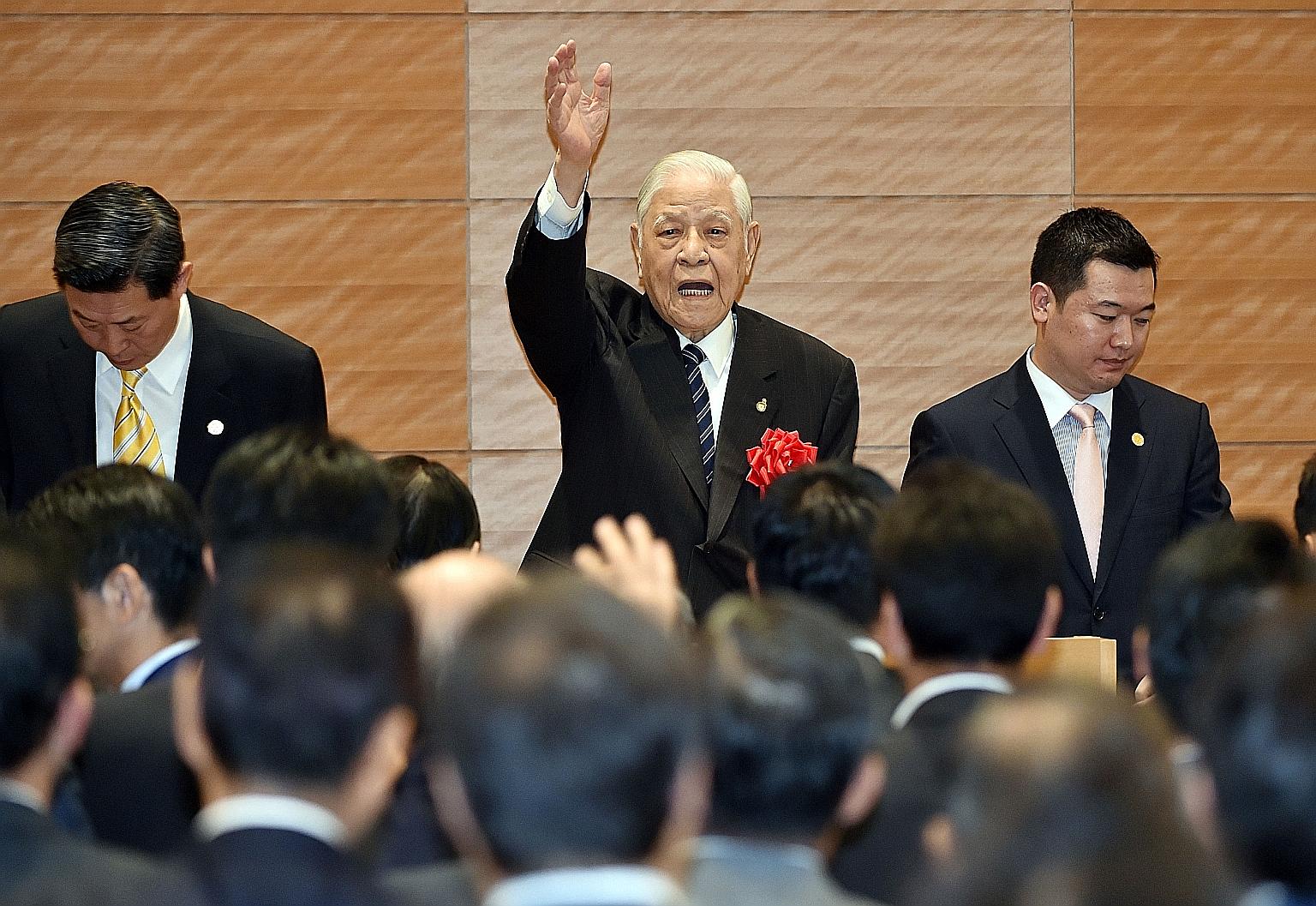Taiwan's former leader Lee Teng-hui dies, aged 97
Sign up now: Get insights on Asia's fast-moving developments

Taiwan's first democratically elected president Lee Teng-hui, seen in this 2015 file photo, ended the state of emergency the Kuomintang had imposed in case of conflict with China during his term in office.
PHOTO: AGENCE FRANCE-PRESSE
Mr Lee Teng-hui, Taiwan's first democratically elected president, died from multiple organ failure yesterday evening. He was 97.
President Tsai Ing-wen, who visited Mr Lee in hospital on Wednesday, described his contribution to Taiwan as "irreplaceable" in her condolences to his family.
"President Tsai believes that former president Lee's contribution to Taiwan's democratisation is irreplaceable, and his passing is (Taiwan's) biggest loss," said Secretary-General to the President Su Jia-chyuan, who relayed her message of condolence shortly after Mr Lee's death.
Two days before his passing, rumours of the former president's death circulated on social media, leading many journalists to camp outside the Taipei Veterans General Hospital, where Mr Lee had been hospitalised.
He had been in hospice care since early February, after choking on milk at home. He was later diagnosed with pneumonia, and was intubated over the past five months.
Dr Hwang Shinn-Jang, one of Mr Lee's physicians, said that the former president suffered from repeated infections during his 174 days in the hospital, but that "he fought like a warrior for his life".
Hailed locally as the "Father of Taiwan" or "Uncle Ahui" by his supporters, Mr Lee served as president for 21/2 terms, from 1988 to 2000.
In 1988, as vice-president, Mr Lee stepped in to fill the seat vacated by the Kuomintang's Chiang Ching-kuo, who died.
He was reelected president by the National Assembly in 1990.
In 1996, Mr Lee went on to become the first president to be elected through a democratic vote.
Unlike the majority of the members of the Kuomintang party that followed Chiang Kai-shek to Taiwan after losing the Chinese Civil War, Mr Lee was Taiwanese-born and raised during the Japanese colonial rule.
After pursuing his education in Taiwan, Japan and the United States, Mr Lee returned to Taiwan and was taken under Mr Chiang Ching-kuo's wing, becoming the first Taiwanese-born politician in the Chiang family's inner circle.
During his 12 years in office, Mr Lee peacefully moved Taiwan towards a free democracy, ending the state of emergency the Kuomintang had imposed in case of conflict with China, amended the Constitution to allow for the direct election of the president and vice-president and had all legislative seats re-elected, to replace the unelected Parliament under the Chiang family.
Another milestone in Mr Lee's tenure was his Go South initiative, the plan to branch out in Asia and establish trade ties with South-east Asian countries.
But the initial success of Taiwanese investors fizzled after a series of incidents, such as the 1997 financial crisis, the 1998 anti-Chinese riots in Indonesia and incentives by China that attracted foreign investments, including from Taiwanese businesses who moved their factories to China.
President Tsai now has a New Southbound Policy, encouraging the same Taiwanese businesses to put their eggs in various baskets, relying less on China and moving their operations to other countries in South-east Asia.
Mr Lee is survived by Madam Tseng Wen-hui, his wife of 71 years, two daughters and their families. His son Lee Hsien-wen died of cancer in 1982.


